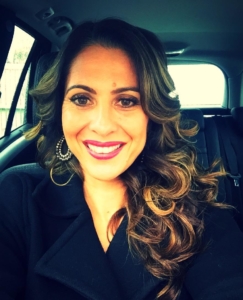Underneath the rock: How to inspire resilience in a pandemic
This week, Sonya Law returns with another guest blog for us. Who better than a Human Resources Manager to help us to uncover what is buried underneath the rock, and how we can inspire resilience in a pandemic.
“Developing resilience helps us to overcome obstacles, deal with change and learn from experiences to thrive in the future…”
Gemma Leigh Roberts, Chartered Psychologist, Founder of the Resilience Edge.
The Pandemic in 2020 will go down in history as a year like no other and we are yet to uncover what is underneath the rock, when it comes to employee’s wellbeing. The iceberg theory helps us to understand there will be some signs on the surface, that we can observe but it won’t be until we go deeper that we will uncover the real human impact. How do we inspire resilience in a Pandemic where employees can thrive, not just survive? And why is it valuable to understand the wellbeing of our employees in order to develop a resilient and innovative culture into the future?
As a Human Resources Manager my approach during the Pandemic was to promote positive mental health in our workplace and inspire a culture of resilience and innovation.
We already had a health and wellbeing committee with cross functional representation of employees across the organization and a charter that directed our wellness program. What we introduced that was new was to educate our managers on how to identify signs and symptoms of mental health in employees, who may be impacted by feelings of isolation, anxiety and fear during the Pandemic. With the knowledge that 1 in 5 employees globally in the workplace will experience a mental health issue at any given time.
Firstly, our frontline managers participated in a facilitated session led by Human Resources on how to have a wellbeing conversation with their employees about their mental health.
Managers were equipped as the first responders, on how to recognize the signs and symptoms of mental health in their employees during the Pandemic and have a respectful conversation about their wellbeing or refer to an employee assistance provider. In a poll of managers 80% found it easy and essential to have a wellbeing conversation, 15% awkward and 5% almost impossible. Managers who found it easy and essential understood it takes time to build trust with employees and for employees to open up. As a manager it’s about respecting that these conversations are personal, private, sensitive and confidential.
For those managers who found it awkward to have these conversations, they were encouraged to express their discomfort about having a wellbeing conversation and to say – I am not the expert in these conversations but your wellbeing is important to me, and I just want to check in to see if you are okay? This approach was very well received because it showed that they too were human.
We learnt that by managers holding a space for employees to be listened to discuss their wellbeing as well as their daily work priorities helped employees to feel supported. Leading with compassion, showing genuine authentic care and concern towards another human being promotes feelings of safety a fundamental human need, (Maslow’s Hierarchy) without this need being met we can’t achieve higher order needs. Managers who led with compassion during the Pandemic inspired co-operation amongst their employees.
Secondly, we engaged Melo Calarco a Mindfulness and High-Performance Coach to present to all employees in a lunch and learn Zoom session (60 minutes) on how to develop resilience through a daily self-care practice:
- Manage stress and anxiety and burnout (exercise program)
- Better quality sleep
- Be more engaged and productive
- Thrive in challenging conditions (resilience)
- Have more mental clarity and focus
- Stay positive and motivated
- Connect as a team
- Cultivate Gratitude.
We get a hit of serotonin ‘the feel-good hormone’ when we engage in activities, we enjoy which we get from a daily self-care practice. Serotonin also regulates the gut so we get the added benefit of improving our digestion and gut health improves our mood and protects us against digestive disorders linked to depression. You can research more into how what you eat can affect your mood – Grain Brain, New York #1 Best Seller – Author Dr. David Perlmutter and Kristin Loberg.
The Pandemic showed us that a successful organization who adapts well to change, is agile and can keep pace in a rapidly changing environment. Even when there is no blueprint for employees to work off, employees are empowered to think on their feet and solve new problems. It’s essential that leaders develop organizations into the future where people can perform well beyond its boundaries where surprising events occur, where plans and procedures no longer apply. Described as graceful extensibility, is a positive capability to stretch near and beyond boundaries, when surprise occurs the organization continues to perform during periods of disruption i.e. Pandemic, the behaviors that organizations must exhibit are both resilience and innovation.
For more information on our assessments and classes, please visit us at Learning Without Scars.

